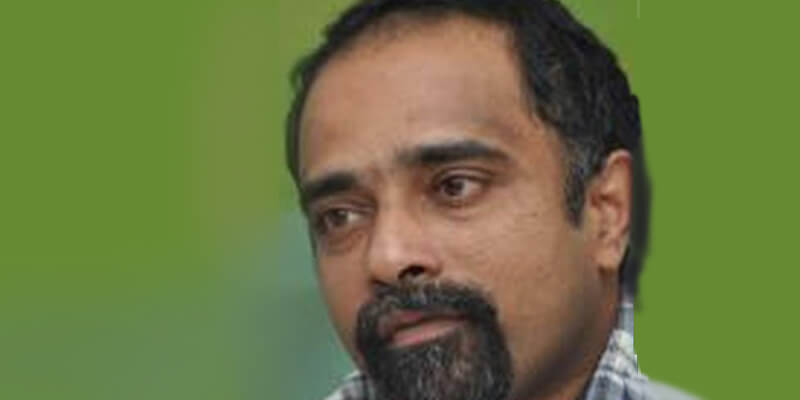T. E. Raja Simhan
Chennai.
Nine years ago Mr Paul Basil had a dream — To improve the lot of rural poor and to empower villagers to make a difference to their lives. The dream took concrete shape in Villgro, his company, which has spotted and developed several innovations that have benefited the rural areas.
An irrigation model that conserves water by over 70 per cent, a stove that uses farm waste as fuel, and a cost-effective cow milking machine are some of the innovations Mr Basil and his team have taken to villages.
Since its inception in 2001, Villgro has incubated some 2,000 social innovators, impacted over 360,000 rural users and created social returns worth $5 million. “This is only the beginning of a long journey to change the lives of villagers,” says Mr Basil, a mechanical engineer and a graduate of the Indian Institute of Forest Management, Bhopal.
Mr Basil was one of the earliest members of the marketing department of the Kerala Horticulture Development Programme, a joint project of the EU and Kerala Government. The fruit and vegetable farmers’ markets and Udyanam, a fresh fruit and vegetable retail chain that he helped spearhead, today have over 100 outlets and are commercial horticulture hubs in Kerala catering to over 10,000 farmers.
Villgro supports entrepreneurs end-to-end — from identifying innovations (a product or a service), incubating ideas, transferring the ideas to those who can take them forward, and finally marketing innovative products in villages.
The seed funding is need-based and varies from Rs 10 lakh to Rs 25 lakh, Mr Basil says. The Lemelson Foundation, HiVOS, The Rockefeller Foundation, Aspen Network of Development Entrepreneurs, and The Sir Dorabji Tata Trust support with funds.
Challenges
The challenge in villages is the last-mile reach of the products. Affordability and creating awareness of products are major issues. Villagers do not have access to products that can make a difference to their lives. For instance, they still use old choolas’that produce more smoke than heat. One can do a lot to change this.
Companies have not addressed issues that concern villagers. He says that it is not easy to build a business model. “We believe that an innovative new product or a new service combined with a sustainable, market-based business model can only create a lasting impact on the lives of the rural people. That’s the fundamental premise on which we are based,” Mr Basil says.
Branded stores
Also, the innovative products need to be sold in villages but there are not enough outlets especially as they require extra awareness building. Thus, Villgro has set up its own Villgro Stores to sell these products. “We are trying to address the last-mile reach through these stores. We have ten stores touching nearly 4,000 households in villages,” Mr Basil says.
Between the stores and the customer is the ‘Village-level Entrepreneur.’ Villgro identifies people from villages to train them as entrepreneurs and become intermediaries. They create awareness of products and sell them, for a margin.
There are 40 such entrepreneurs attached to the 10 stores and plans are to increase the number to 400 stores in the next five years. This means Villgro would create a network of nearly 3,000 entrepreneurs. “With each store touching a minimum of 100 households, we are talking about 300,000 households,” he adds.
Villgro plans to establish a fund management company to raise and invest money into social enterprises to scale sustainable business practices that benefit the poor while encouraging their participation and growth in the economy.
The fund aims to bridge the gap in financing early-stage enterprises face after outgrowing their start-up capital but are not able to attract the attention of mainstream venture capital despite being poised for growth. Bridging this gap can pave the way for hundreds of social enterprises to grow at a pace consistent with their ambition and also access large mainstream capital when they are ready.
The Villgro fund will have a rural orientation with a focus on agriculture, energy and livelihood generation, and will emphasise on supporting technology and service innovations, Mr Basil says.
Success stories
While there are many innovations that Villgro has helped with, Mr Basil highlights those that have really caught on. For instance, the Chennai-based Servals Automation Private Ltd. Villgro supported this company ten years ago. Its Venus burner delivers 37 per cent savings in kerosene consumption, lasts longer, is safer, makes less noise, and is easy to maintain. Servals went on to raise venture capital funding in 2002 and another round of funding from Aavishkar. From 5,000 burners in 2002, the company today sells around 80,000 burners a month.
Another example is the milking machine. Nearly 80 per cent of the milk is sourced from farmers with just one or two cows who cannot afford electrical machines that cost Rs 35,000 to Rs 80,000.
One person built a Rs 3,000 machine and another that cost Rs 8,000. Villgro supported both with early-stage funding.
![]()


